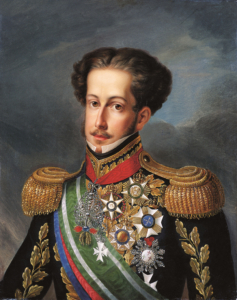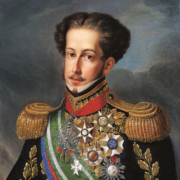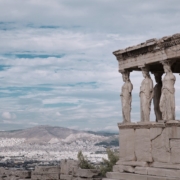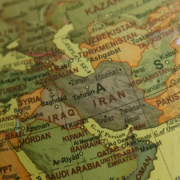Background to the Arab revolts of the early 20th century. Since the end of the 19th century, the internal fragmentation of the Ottoman Empire has been so great that there is a constant threat of European powers intervening. Faced with this situation, the Sultan is forced to enact a series of reforms, known as the Tanzimat, which aim to promote economic and educational development, especially with the obvious intention of culturally homogenizing the territory and favoring the more isolated regions or with less financial resources.
Despite these actions, the reformist attempts arrive late and do not prevent a revolutionary movement from being unleashed in 1908, a movement that, starting from the Balkans, will expand and take on a much larger dimension when intellectuals join it. This revolutionary movement born with the ultimate goal of achieving a constitutional government would be led among others by the Young Turks, young military men and intellectuals who organize and put themselves in charge because they consider it their duty, practically as if it were a pedagogical mission. it was treated
To describe the situation that will be experienced in 1908, the Arabic concept Inqilab is sometimes used, very similar to the term overthrow, although at the beginning at no time would the unity of the Empire be questioned, so it would be more convenient to speak of reforms If it is true, however, that as the authorities respond violently, the movement is increasingly taking on an anti-imperialist character due to the hatred generated by many of the figure of the sultan who is also the caliph, for which he exercises as religious leader as well as supreme governor of his territory.
This fact is what makes the already proclaimed Revolution of 1908 become a religious revolution. The religious change has thus become an opportunity to achieve a sought-after background, to achieve more individual freedoms. With this situation and thanks to intellectuals like Al Kawakibi an idea will begin to spread throughout the empire and that in some cases will transcend its borders, Islam needs a renewal movement that raises several issues that until now had not been addressed, such as the role of women in society, an aspect on which the journalist Abd al-Qadir al-Maghribi would particularly focus. And as a result of these approaches, newspapers and schools of thought dedicated to discussing these issues would be founded.
Faced with this situation and due to the decreasing support within the Empire, the caliph would be forced first to restore the Constitution, and then, if that was not enough, to give up. In this way, the Young Turks would take power by promising the people to take charge of all these reforms that had been proposed at the beginning and that over time it would be evident that they would not be implemented. Although at the beginning it seemed that an unprecedented change would be noticed in Ottoman territory, the beginning of the First World War had great effects on the territory since, in order to stay in the conflict, the authorities launched a policy of deprivation and inquiries that led to great famines. In addition, in 1915 the forced deportations and massacres dictated by the authorities would begin, against some peoples such as the Armenians, thus demonstrating that the situation in the Empire was increasingly unstable and that disenchantment with the Young Turks was growing exponentially especially forced to some points of this tottering power.
Background to the Arab revolts of the early 20th century: what it entailed
With this internal situation and as failures were added at the front that led to thousands of casualties among the young people who had been sent to fight for an empire with which they felt less and less represented, they would begin to see uprisings against the authorities. Uprisings that would persist after the resolution of the conflict and that the allied side occupied what was the Great Ottoman Empire deposing the Young Turks, officially the CUP (Committee of Union and Progress), although from this moment many of ‘these pronouncements would come to be called the Arab revolts given the large component of Arabism that would be demonstrated in these acts, in which they also began to consider real emancipation for the first time. So we see that the foreign interference causes a nationalism to begin to appear that could hardly exist before, since before there was no such feeling of belonging to the Ottoman Empire that from this moment on it would appear with the Arab identity , with which they increasingly felt identified by all the symbolic load it carried.
Although these movements would become much more evident after the arrival of foreign powers, we already have in 1916 the Great Arab Revolt whose ultimate goal is to create a unified Arab state to replace the fragmented and inefficient Ottoman Empire that with the CUP in power aims to isolate and ignore Arab interests in favor of the Turks. A revolt on the other hand, supported by the English and French who would take advantage of the Arab discontent to divide and weaken the Ottoman Empire that fought on the side of the Central Powers during the war.
Over time, and as this Arab revolt gained more strength, both the English and the French withdrew their support as they understood that it could be dangerous for their interests this union of territories with aspirations of political emancipation that it achieves, all and that does not yet have a clear design, finally independence.
Despite having ceased to count on foreign support, the hatred against everything linked to the Turkish ruling elites who have so harshly punished the Arab cause is so great that in some parts of the damaged Empire increasingly stronger Arab organizations appear, such as it is the case of the Arab Kingdom in Syria led by Faysal, son of the sheriff of Mecca. This Arab Kingdom, although it would cease to exist as such a little more than four months after its official independence after the defeat against the French, would evidence this desire to create a great Arab state, the dreamed Greater Syria that never it would materialize due precisely to this foreign interference, because the region would be divided in two according to the Sykes-Picot agreements between the English and the French.
With these agreements, the guardianship regime would begin to be applied as such, legitimate according to article 20 of the statute of the League of Nations in the case of a territory constantly agitated by disputes or revolts. From this moment, therefore, the French could manage the territory that had been assigned to them as they thought necessary in the same way as the French would do in their part. So, everyone would manage the situation in their own way and while the French focused on benefiting the interests of Christians in the area by proclaiming the independence of Greater Lebanon, with a Christian majority, in 1920, it was the English who had to in charge of an even more sensitive situation they consider that Iraq should be granted a theoretical independence, although always under their tutelage, while in Palestine they chose to remain to some extent on the sidelines, especially after the Balfour declaration in favor of Jewish interests worried the Arabs in the area.
It is thus observed that the feeling of pan-Arabism is not something recent, but transcends time. Already since the beginning of the 20th century, the Ottoman Empire has been a dying colossus and its last tail blows directly affect the Arab territories since the CUP at first and then the European powers, relieved them in the background causing the unrest that would end in time leading them to rise up against the status quo with the intention of creating a state that fits their claims, claims that otherwise had been ignored all this time and would cause great misfortunes with time.







